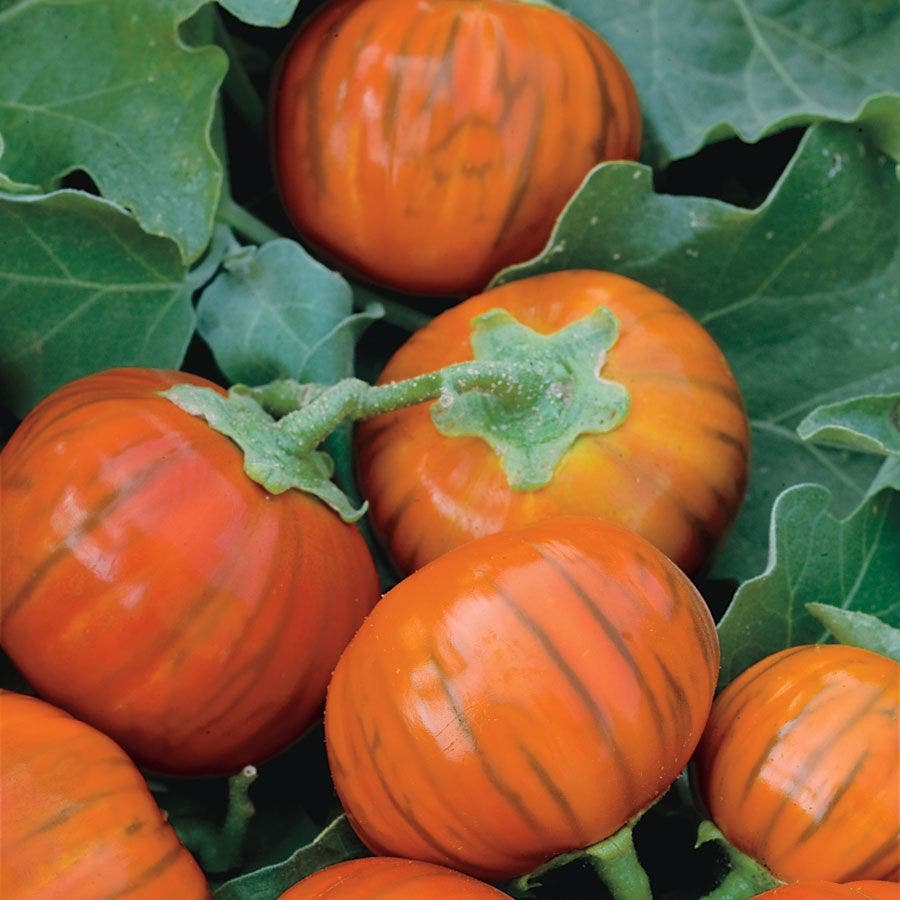Turkish Orange Eggplant Seeds
Turkish Orange Eggplant Seeds
Zone compatibility details
Understanding the Prices on Our Product Pages
When shopping on our site, you might notice different types of prices listed for products. Here’s a quick guide to help you understand what each price means:
- Regular Price: The price before any discounts, typically reflecting the median price from the past 90 to 180 days, excluding special promotions and clearance events.
- Now Price: The updated price of an item after a reduction from the regular price. Now Prices are often limited to a short time frame and offer the opportunity to save.
- MSRP: Manufacturer's Suggested Retail Price, provided by the manufacturer as a benchmark to highlight the value of our current pricing.
- Discount Exempt: Products labeled discount exempt are not eligible for discounts or promotional offers.
Please note that product prices are subject to change without notice.
Couldn't load pickup availability

Grow Zone
-
Mature Height
22
Mature Width
Sun / Shade
Full Sun
Bloom Size
need bloom size meta
Tomato Fruit Set
Days To Maturity
80
Fruit Weight
Soil Tolerance
Normal, loamy
Moisture
Moist, well-drained
Description / Turkish Orange Eggplant Seeds
Days to Maturity: 80 from transplant
Here it isyour must-grow eggplant this season! Turkish Orange is an African species (the purple and white varieties we are more familiar with are Asian) with an incredibly rich, non-bitter flavor and a charming round shape. That's not to mention the orange color with stripes!
Turkish Orange sets fruits the size of tennis balls. Unlike many heirloom vegetables, it is a very heavy producerexpect a long and fruitful season of 3-inch-diameter eggplants from very compact plants you can grow in containers as well as the garden.
Even though Turkish Orange is always photographed in its full deep orange regalia, the fruit is actually best picked when the fruits begin to turn from green to cream. They may not look as pretty on the chopping board at this stage, but their sweet succulence is at its height. However, they are so charming as they turn orange and the stripes intensify that you may be tempted to grow one Turkish Orange plant just as an ornamental. Why not? You can enjoy the pretty fruit for weeks, then feed the compost pile!
You need never salt this eggplant. It is far sweeter than Asian varieties, with a tender bite that you'll fall in love with. Use it just as you would its purple and white cousins in all kinds of dishes.
The best part is that this plant is petite enough to grow in patio containers. Even if you don't have space for even one more plant in the sunny garden, Turkish Orange will grow happily in a tall planter, tub, or other large container. It reaches 18 to 22 inches high, and has much larger yields than big Asian eggplants twice or three times its size.
Turkish Orange is also known as Scarlet Eggplant or Ethiopian Eggplant. It was featured in a recent story on National Public Radio, so American gardeners and cooks are beginning to request it by name. Be the first on your block to grow this super-easy, super-delicious new vegetable.
Begin seeds indoors 8 to 10 weeks before planning to set out. Eggplant loves heat, so the seeds germinate best at about 75 degrees Fahrenheituse a heat mat if possible beneath your Bio Dome or seed flat, or find another source of bottom heat if your house is cooler than this. Cover the seeds lightly if sowing in a seed flat; if using the Bio Dome, just drop one seed in the pre-drilled hole in each bio sponge. They will germinate in about 1 to 2 weeks.
The seedlings crave heat and light; give them all you can (grow lights are wonderful, but kitchen fluorescents work well too if the seedlings are placed directly beneath them), and feed them weekly. They are ready to transplant whenever they have at least 2 sets of true leaves, but wait until the outside weather is thoroughly warm before transplanting into garden or patio container. Turkish Orange is a heavy bearer, so you might want to stake the plant to hold up the big bounty of fruit.
Product Details
SKU: 52680-PK-P1
Genus: Solanum
Species: aethiopicum
Variety: Turkish Orange
Size:
Habit: Compact
Light Requirements: Full Sun
Moisture Requirements: Moist, well-drained
Soil Type: Normal, loamy
Harvest Season:- Early Fall
- Late Summer
- Mid Summer
Uses:- Outdoor
- Containers
- Cuisine
- Beds
- Edible
- Heirloom
